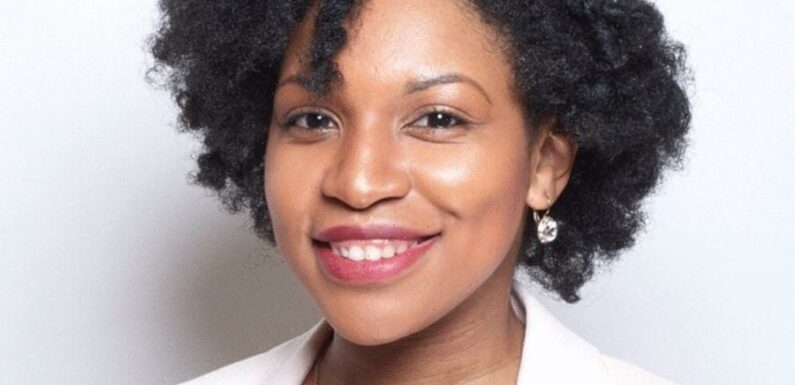
“It’s really, I think, flipping therapy on its head,” says Lauren Elliott of her game-changing app, Candlelit Therapy. Created to help new mothers, moms of very young children and future moms of color prioritize their mental health, Elliott found the inspiration from her own desire to feel supported (in more ways than one) when she welcomed her first child. She also drew from a fellow Black woman co-worker, pre-pandemic, who found ways to make time for therapy during her lunch break, not allowing for obstacles, to ensure that she could function at her best.
“I realized you can really weave therapy into your life on your terms,” she tells ESSENCE. “So, that was very powerful for me to see.” After gifting herself therapy sessions for her birthday to normalize therapy in her own life, Elliott realized there was a need to bring therapy to busy parents of color in a way that wasn’t overstepping, didn’t take too much time away from their life and responsibilities, but made sure they felt heard and seen, especially within the first 45 days postpartum. Lack of support, particularly the social kind, Elliott says, is a major risk factor for the development of perinatal mood and anxiety disorders. That’s what Candlelit Therapy seeks to provide now.
“This can manifest in friendships, family relationships, work relationships. It’s the parent, not feeling like they have anyone to lean on, anyone to express anything to,” she says. “We’re basically creating a support system, a coaching system and model that is built to really look out for these things, and allow partners to be able to contact us, and be able to share, ‘Hey, my wife, my spouse, my partner doesn’t act like themselves.’ We’re really giving the space for partners to also be able to communicate with us, if the parent cannot, or is not able to, or can’t see it.”
Named after the idea that a candle never loses its flame by lighting another, Candlelit Therapy also seeks to support women who desire motherhood. That includes those who may be experiencing tumult if they are struggling to conceive.
“That is a space that, as far as mental support surrounding just the fertility journey, has not been discussed enough,” says Elliott. “So, that’s where we really want to start. We really want to engage the parent at that stage, so they know that guidance, or support, or mental health awareness around this stage, is just as crucial. And then from there, really following them throughout their entire pregnancy up to a year postpartum.”
But Elliott says one of the most vulnerable times for women comes within the first year after having a child.
“One in every five moms of all races and ethnicities are experiencing perinatal mood anxiety disorders. They do that before the baby turns one. So, it’s 20% for all moms, but it’s closer to 60 for black women alone, she says. “For women of color at large, it’s around 40% of women of color who experience perinatal mood and anxiety disorders.”
So how is Candlelit Therapy reaching out to to all of these women? By offering affordable coaching and flexible therapy sessions, including cognitive behavioral therapy. She’s teamed up with licensed therapists of color to provide services based on a rate or determined sliding scale. But there’s more than that. They offer audio, articles and more to reach parents in a flexible way. For the mom who can’t do a therapy session one day, she can listen to a coaching session on the app. She can tune in while washing the dishes or putting the baby to sleep. An overwhelmed mom can still engage in a therapeutic offering without having to speak to an individual directly. It’s making mental health services more available in a variety of ways.
“It’s really giving parents the space to sit with their emotions, and work through those emotions, manage stressors, learn about resources, learn about treatment options, and then make an actual educated decision, without having to feel forced, or having to Google, and navigate a system without that education,” she proudly says.
The overall goal, which is an extremely important one in light of World Mental Health Day, is to ensure that moms and future moms know what’s available to them when feelings arise that are of concern.
“It’s okay to not be able to handle it, but it’s not okay to stay in that state of mind, when you’re not able to handle it,” says Elliott. “What we’re doing is really normalizing that it’s okay not to be okay, but really it’s not okay to stay there. And we are helping parents not stay in these depressive episodes, or anxious episodes. Really helping them to maintain symptoms, and manage their emotions, and then really be that bridge to, if they truly do want to engage in therapy, be able to do that.”
Learn more about Candlelit Therapy at livecandlelit.com.
Source: Read Full Article
